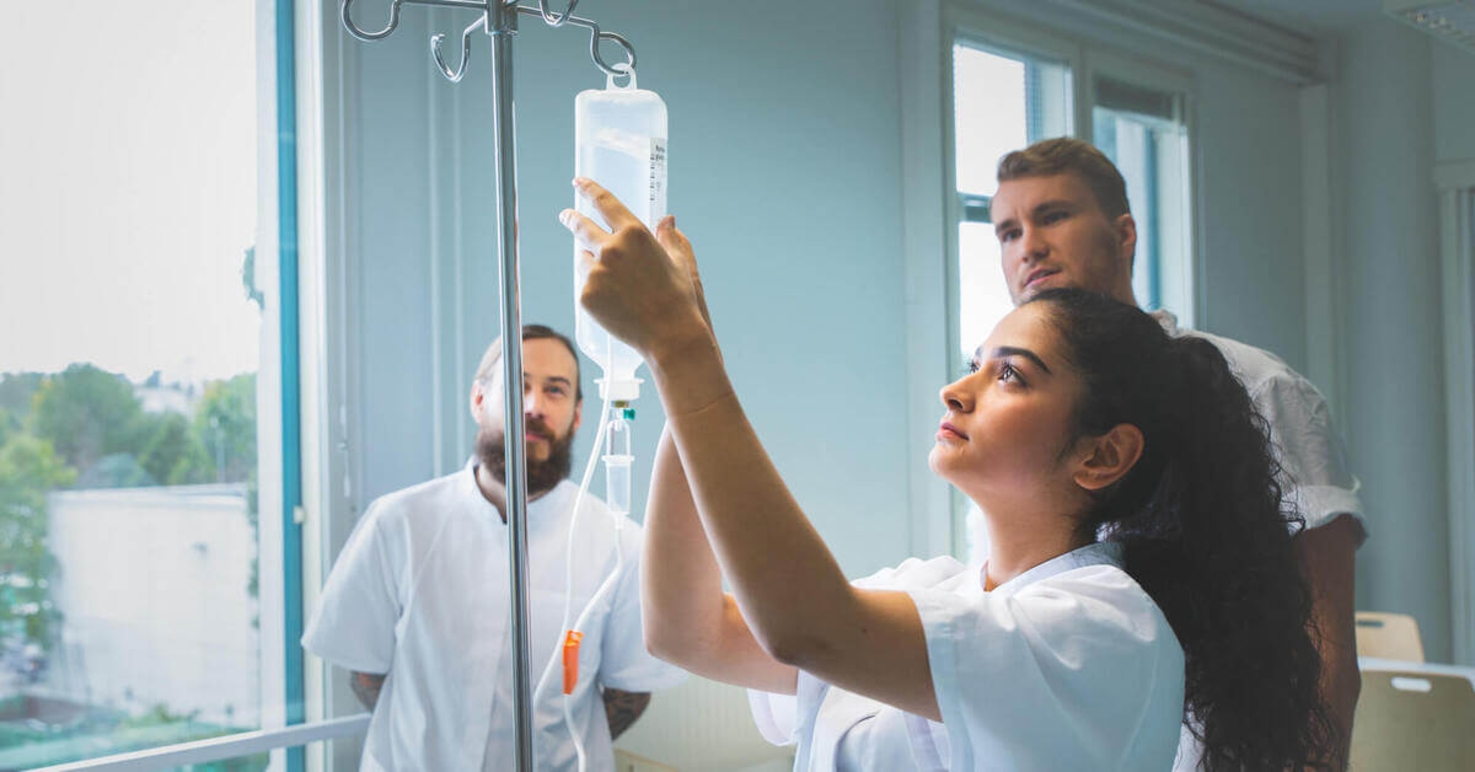Master’s thesis: Determinants of patient satisfaction in a neurological rehabilitation centre
Laurea Master’s degree student Mari-Liis Ööpik-Loks identified factors determining patient satisfaction.

Respectful communication, adequate information and meaningful free time activities are some determinants of patient satisfaction in inpatient neurological rehabilitation setting. These were some of findings in Laurea student Mari-Liis Ööpik-Loks' Master's thesis.
Patient satisfaction has gained increased attention worldwide as an aspect of quality of healthcare service that in several countries has been tied to financial incentives and reimbursement decisions.
In recent years the focus has shifted from patient satisfaction to patient experience but there is still ambiguity in the use of these terms in the literature. Patient experience has been defined as “the lasting experience the consumers carry with them” while patient satisfaction is understood as a “perception at point of time”, thus more dependent on the mood of the person at the moment.
The case of Haapsalu Neurological Rehabilitation Centre
Haapsalu Neurological rehabilitation Centre (HNRC) is a modern hospital with 102 beds on the Western coast of Estonia, providing inpatient and outpatient rehabilitation services for adults and children with various neurological conditions such as stroke, traumatic brain injury (TBI), spinal cord injury (SCI) and paediatric pathologies.
Twenty adults with either spinal cord injury, stroke or traumatic brain injury participated in four focus group interviews. The results show that patients value communication and staff behavior that respects them as a person and honours their autonomy.
The patients are striving towards regaining their lost or limited independence with the main partner on their way being their physiotherapist with whom to discuss the aspects of their condition as well as the therapy. The physiotherapists also provide the main support in goal setting that was admitted to be challenging by the participants.
Obstacles on the way are experienced both at the level of the service provider and the level of health care system. The participants reported problems with service provision in occupational therapy, availability and timing of information and boredom during the free time in the evening.
Four suggestions could be made based on the interviews, specifically regarding educating staff in communication skills, organized free time activities, provision of occupational therapy and information exchange.
Several methods can be used for collecting data on patient experience and satisfaction, the most prevalent of which are satisfaction surveys. The data collection methods themselves have been shown to affect the results and a mix of qualitative and quantitative methods has been suggested in order to capture more in-depth data.
HNRC has been collecting patient satisfaction data for over a decade, using a self-designed questionnaire. As described in the action plan of HNRC for 2019 and as a part of the organizational improvement activities, a qualitative study using focus group interviews was designed in an attempt to gather additional information on patient satisfaction and experience.
Mari-Liis’ thesis can be read online in the Theseus portal: http://urn.fi/URN:NBN:fi:amk-2019061416925
For more information:
Mari-Liis Ööpik-Loks, author of the thesis
Master’s Degree Program in Global Development and Management in Health Care
Tel. +372 53 311 220